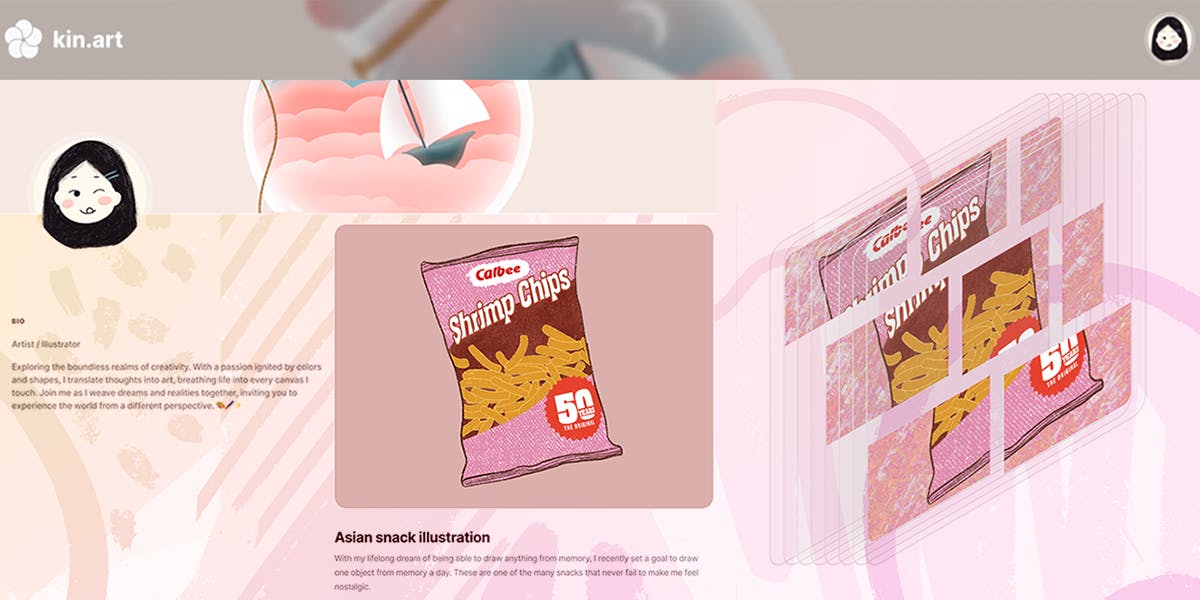
2023 was a pretty horrible year for artists. The rise of AI might have been a dream come true for some, but for others, it was a nightmare. Way too many artists have had their life’s work used without permission, and up until recently, there’s been nothing they could do about it.
However, a new service, Kin.art, is stepping up to the plate to offer artists some protection.
But how exactly does it work? The platform says it breaks images up into segments so that a complete piece of art is never able to be added to an AI dataset. It also uses label “fuzzing” to disrupt AI’s proper labeling of images.
“As AI datasets require pairs of images and labels to be used in conjunction to properly train the AI on what the images are, if we can disrupt either the image or the label associated with a given artwork, we can prevent the artwork from being successfully inserted into the dataset,” Ronsmans De Vry continued.
At present, Kin.art portfolios, which include this AI-protection feature, are in the very early stages. Artists can also post their work on the website and sell commissioned art to clients via the platform’s “commission management toolkit.”
The commission management service is currently free of charge, aside from Stripe fees (2.9% + 30 cents per order) on all commissions. Starting in March of 2024, the platform says it will take a 5% service fee on commissions.
“For our business model, we currently don’t charge any fees for commissions handled through our platform except the fees we pay directly to Stripe, our payment processor,” Ronsmans De Vry told Passionfruit. “After our beta phase, we plan to charge a small percentage-based commission on top of these to fuel our growth.”
However, the platform’s AI protection and portfolio features are intended to continue indefinitely as free of cost to the public. “Core to our offering are our portfolio and AI-protection features, which will remain free for anyone using our platform,” Ronsmans De Vry continued.
Ronsmans De Vry, CTO, is one of three technical brains behind the company. He told Passionfruit he studied computer science at the University of Antwerp and started his own cybersecurity tech company at age 16. Mai Akiyoshi, the CEO, is formerly a senior software engineer at Gusto and the first female engineer in the research and development department of the Japan-based tech company Works Applications.
And last but not least is Ben Yu. Now COO, Yu taught himself how to be a software engineer after dropping out of Harvard and, most notably, is a recipient of the prestigious Thiel Fellowship. The three entrepreneurs are also behind several Web3 projects, including Curious Addys and HeyMint.
Together, the team is now providing artists with armor in the war against exploitative AI. Hopefully, the spirit of ‘tech for good’ will catch on.
Will you be using this software? Tell us what you think at tips@passionfru.it.




